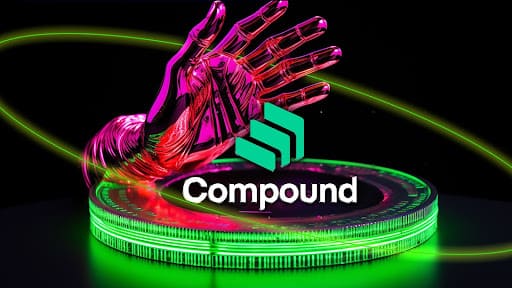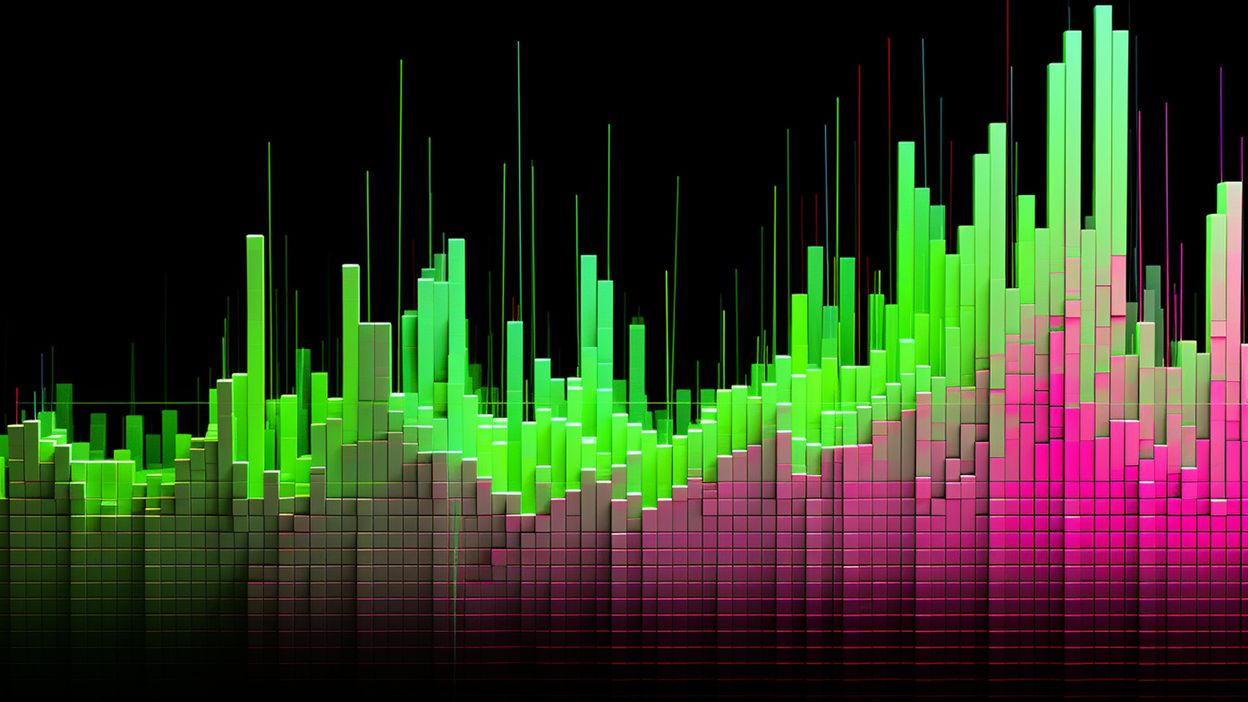
Many traders have been in a fix where they needed Ethereum tokens in an emergency, maybe because of issues with their debit cards or downtime on servers. Compound exists for those moments, as it is the best bet for crypto loans in the market.
Compound was created in 2019 to provide users with secure lending services while offering other traders and investors an opportunity to use their idle funds to earn passively. The Compound lending/borrowing platform hosts seven token markets that provide collateral for the Ethereum loans it disburses, including Arbitrum to Base, Polygon, and Compound V2 markets. Each market works with a preset interest rate, which dictates the potential gains for the lender and how much the borrower will be paying in addition to the loan.
But Compound isn't only about loans anymore. The blockchain has expanded, like every other DeFi token, and now features distributed applications that offer more services to users. Want to know more? Here we go!
A 'Compound' History
The background on Compound is pretty straightforward; the idea was conceived, and Compound Labs was established in 2017. After some development, the whitepaper for the token and its platform was released in 2019. Soon after, Compound was released as a crypto token.
In 2018, venture capitalists Andreessen Horowitz and Bain Capital Ventures contributed $8.2 million to the Compound project. New investors came in by 2019, and the project raised a further $25 million from other venture capitalists.
Compound's Blockchain Security
Compound boasts a high degree of security, and given the sensitivity of its loan operations, that doesn't occur as surprising. According to the platform's whitepaper, developers and third-party experts have worked together to audit and verify every smart contract on the blockchain. The result is a safe and secure server with publicly verifiable protocols.
The economic security is handled by Gauntlet, which creates a testing program that simulates market stress to periodically evaluate Compound's economic security. For audits, OpenZeppelin and Trail of Bits have reviewed the Compound protocol and audited it several times to ensure that it is free of rug pulls and scams. Certora, a software algorithm integrated into the Compound system, handled the verification of Compound's protocols and contracts.
Crypto projects require regular upgrades to their security systems, as they are often subject to constant attacks from hackers. DeFi protocols require even more attention since they hold vast amounts of digital assets. To augment its efforts at keeping the blockchain secure, Compound has a standing policy on bug discovery and removal called the 'Bug Bounty Program'.
The program rewards developers or hackers who contribute to Compound's platform security by discovering the platform's bugs and security lapses that leave it vulnerable to attack. Depending on the terms and conditions of the discovery, developers with a viable solution may receive between $500 and $150,000 in rewards for upgrading the security of Compound.
Compound Governance: cToken and COMP
To simplify all operations, Compound has two tokens, each serving different purposes. The community uses the COMP token to vote; that is, it acts as a governance token. It is not used in DeFi operations and can only be delegated when a user wishes to make a proposal to the community.
On the other hand, cToken is the primary means of interacting with the Compound network. Users mint cToken for use in the ecosystem, remit and take loans in the form of cTokens, and even set cTokens as collateral for the loans. Token transfers on the Compound platform are in the form of cTokens.
So while one token fuels the blockchain, the other is used to vote on proposals for the platform's affairs. The community is an active hub of COMP holders, where all the decisions on Compound's future occur. Their proposals range from adding new token markets, modifying market structures in the existing markets, or adding new properties to the blockchain, like DApps and wallets.
A typical voting session on one proposal could take a week to complete. It has three stages through which the proposal must pass before it is approved. The COMP token, governance module, and Timelock are crucial features of the Compound network that allow the community to interact, vote, and approve proposals for implementation.
The first step for every proposal is to become an autonomous proposal. A proposal becomes autonomous when it has up to 100 COMP in support. Users can send their COMP tokens to one wallet, where the tokens aggregate till they are up to 100.
Once the proposal is autonomous, it will progress to become a governance proposal, which requires 65,000 COMP. Once the proposal gets to the governance stage, it undergoes review for two days before it is approved for voting.
Voting could take three days to complete, and 400,000 votes are required with a majority voting for a proposal to get approved for implementation. All the processes up till now take place via the governance module, and after voting, the proposal is queued in Timelock for two days. Afterwards, it is ready to get executed.
Compound Applications
As we stated earlier, Compound is home to a wide range of DeFi applications that offer users quite the complete experience when it comes to lending, exchanging, asset tracking and security, and wallets. There are DApp extensions such as OKX wallets and Argent, where users can contribute their tokens as a utility for lending and gain interest as rewards.
You can also access multi-coin wallets like Binance, along with its full suite of DeFi operations. The Compound ecosystem also supports cold storage wallets (such as Ledger), these hardware wallets offer physical access to your crypto wallets. With Ledgers and Compound's advanced security, your investments are more than safe on the Compound network.
There are also crypto tools like Cointracker that helps users keep track of their digital assets, and Fireblocks enables users to transfer their assets conveniently through exchanges, the Compound network, and their wallets. The versatile nature of Compound's ecosystem is down to contributions from its community. The community is always ready to collaborate with developers to create Ethereum-compatible applications to improve the efficiency of the Compound blockchain.
Where to buy COMP
You can get COMP tokens from various non-custodial wallets like Coinbase or from many decentralized exchanges. For cTokens, you will have to mint them from the Compound DApp, as it is only used in their network. The Compound Labs team releases 2,800 tokens every day, for distribution among lenders and borrowers.
Want more top-tier crypto educational content?
Follow Us: X TikTok Instagram Telegram LinkedIn
Sign up to our newsletter at the bottom of the page
Check Out Our Top 10 Crypto Currencies of 2023
This article is intended for educational purposes and is not financial advice.


















